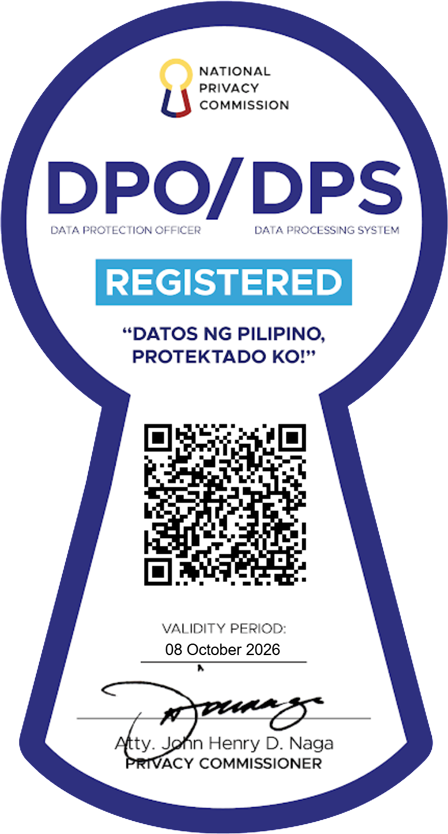Safe sex is more than just a health precaution—it’s a meaningful expression of care. When partners choose to protect each other from unintended pregnancy and sexually transmitted infections, they show respect, responsibility, and genuine concern for one another’s wellbeing. Understanding the importance of safe sex helps build trust, strengthens communication, and nurtures healthier, more confident relationships. In this guide, we explore why practicing safe sex matters and how it supports both emotional intimacy and physical health.
Key Takeaways
-
Practicing safe sex is an expression of care and respect within a relationship.
-
It protects partners from STIs and unplanned pregnancies.
-
Understanding safe sex practices supports emotional, physical, and community well-being.
-
Access to accurate reproductive health education empowers better choices.
-
Reducing stigma is key to improving sexual health outcomes in the Philippines.
Understanding Safe Sex
Safe sex refers to practices that help protect you and your partner from sexually transmitted infections (STIs) and unintended pregnancies. It goes beyond physical safety — it is also about emotional security, trust, and mutual respect.
What Does “Safe Sex” Really Mean?
Safe sex refers to the practices involved in protecting oneself and one’s partner from sexually transmitted infections (STIs) and unplanned pregnancies. This concept is pivotal for maintaining both physical and emotional well-being in any sexual relationship.
Safe Sex as Demonstration of Love and Respect
Engaging in safe sex practices demonstrates a deep respect for oneself and one’s partner. It involves:
- Mutual consent: Ensuring that both parties agree to engage in sexual activities with respect to each other’s boundaries.
- Understanding and protection: Using protective measures like condoms and other contraceptives to safeguard each other’s health.
The Responsibility of Safe Practices
Safe sex is not just a personal choice — it supports public health.
It helps reduce the spread of infections and reinforces community awareness about sexual well-being.
Practicing responsibility in intimate relationships contributes to:
-
A healthier society
-
More informed decision-making
-
Stronger personal and community relationships
Methods of Safe Sex
Practicing safe sex involves choosing methods that protect both partners’ physical and emotional well-being. One of the most accessible and effective tools is the condom — the only contraceptive method that protects against both sexually transmitted infections (STIs) and unintended pregnancy.
Other contraceptive options, such as birth control pills, injectables, implants, and IUDs, are also available for preventing pregnancy. However, these do not protect against STIs. This is why even when using hormonal methods, condoms are still recommended as an added layer of protection. Permanent options like no-scalpel vasectomy and bilateral tubal ligation are available for individuals who are sure about not having children in the future. In the Philippines, organizations such as the DKT Philippines Foundation provide free vasectomy and tubal ligation services in partner facilities, making permanent contraception more accessible for families who are confident in their reproductive choices. Regardless of the method chosen, what matters most is making informed decisions based on accurate information, personal needs, and open communication with healthcare professionals and partners. Regardless of the method chosen, what matters most is making informed decisions based on accurate information, personal needs, and open communication with healthcare professionals and partners.
Importance of Family Planning and Reproductive Health Education
Understanding sexual and reproductive health allows people to make informed choices.
Family planning helps individuals and couples:
-
Decide when to have children
-
Space pregnancies safely
-
Support physical, financial, and emotional well-being
Reproductive health education also helps break myths and misinformation, especially in communities where sex is treated as a taboo topic.
Overcoming Stigma
Talking about sexual health is still challenging in many parts of the Philippines. Cultural expectations, religious influences, judgment, and shame often prevent people from asking questions, seeking medical advice, or even buying condoms confidently in public. This stigma becomes a barrier that can lead to misinformation, fear, and health risks that could have been prevented with education and open dialogue.
To overcome this, it is important to normalize conversations about sexual health — in schools, online spaces, families, and relationships. Communities and organizations, including sexual health advocates and partners like TRUST, are working to create environments where individuals feel safe, supported, and informed. Encouraging honest communication between partners is a strong step toward empowerment. When we talk openly and compassionately, we make room for understanding, respect, and healthier relationships. Breaking stigma is not just about correcting misconceptions — it is about building a culture where people feel valued, safe, and heard.
Encouraging Safe Sex Practices
Safe sex becomes easier when:
-
People have access to condoms and reproductive health services.
-
Partners practice open communication.
-
Communities support education and awareness programs.
Sharing real stories — whether personal or from trusted advocates — also empowers others to make informed choices.
Conclusion
Understanding why safe sex is an act of love, respect, and responsibility is crucial. It fosters healthier relationships, communities, and futures. Continuous education and advocacy are necessary to ensure everyone has access to comprehensive reproductive health education.








